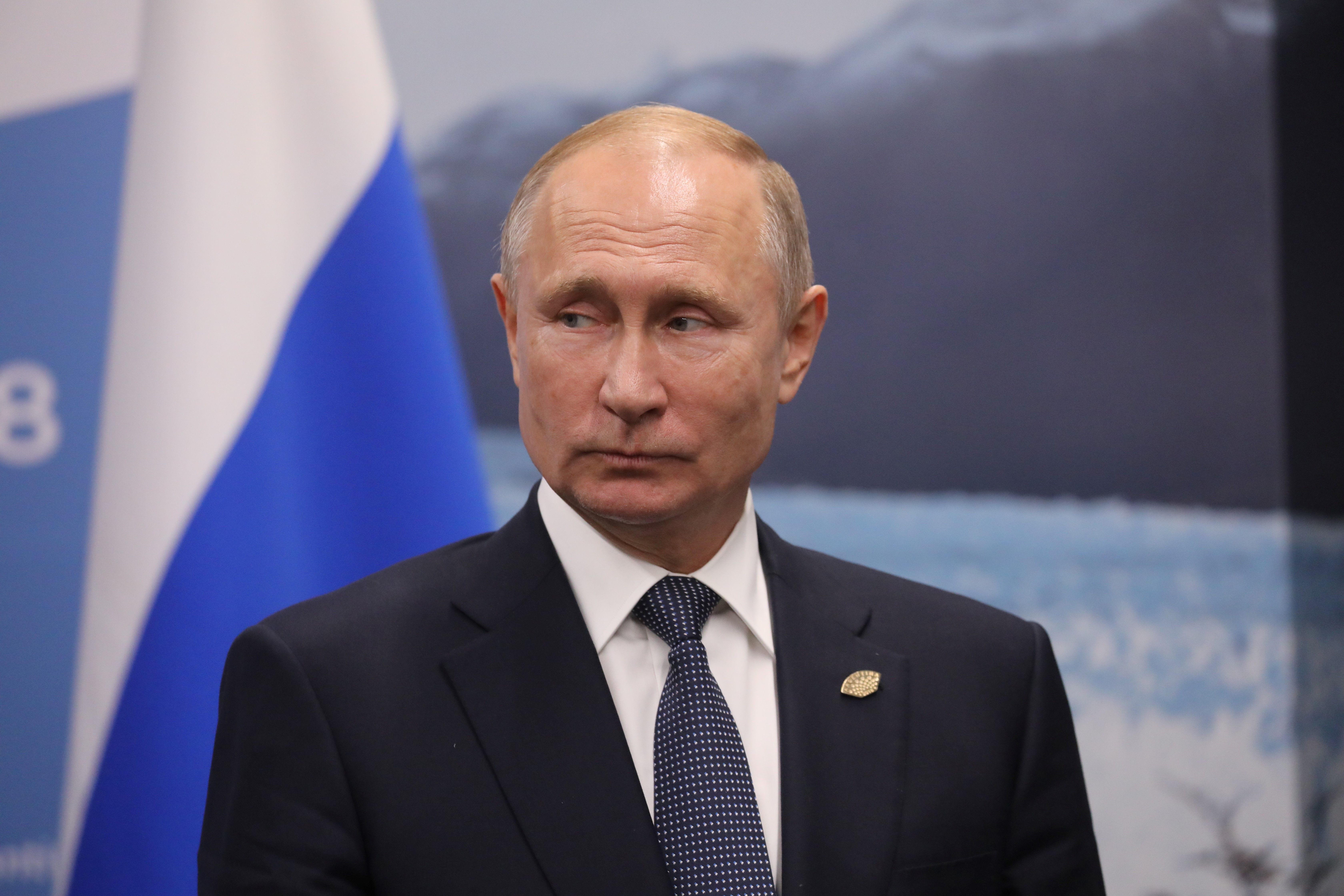Putin's latest proposal renews speculation about his attempts to stay in power after term ends


A free daily email with the biggest news stories of the day – and the best features from TheWeek.com
You are now subscribed
Your newsletter sign-up was successful
Were you expecting Russian Vladimir Putin to sail off into the sunset after his term ends in 2024? Think again.
Putin, who has remained in power in Russia since 1999 by flip-flopping between the roles of prime minister and president, looks like he's aiming to stick around for the long haul in some capacity, as many have suspected.
In his annual state-of-the-nation speech Wednesday, Putin proposed sweeping changes to Russia's constitution which would transfer several powers from the presidency to parliament and the prime minister, including giving the State Duma — the lower house — the authority to choose the prime minister. The prime minister would then present the rest of the government's ministers and the president would not be allowed to reject the candidates confirmed by parliament. Under the proposed changes, the president would maintain the ability to dismiss the prime minister and other cabinet ministers.
The Week
Escape your echo chamber. Get the facts behind the news, plus analysis from multiple perspectives.

Sign up for The Week's Free Newsletters
From our morning news briefing to a weekly Good News Newsletter, get the best of The Week delivered directly to your inbox.
From our morning news briefing to a weekly Good News Newsletter, get the best of The Week delivered directly to your inbox.
The speculation is that Putin could step into the enhanced prime minister's role or another, since Russia's constitution bars presidents from serving more than two consecutive terms, Reuters reports. Putin didn't specify a timeline for a referendum.
In other major news out of Moscow, Russian Prime Minister Dmitry Medvedev announced Wednesday after Putin's speech that he and his government would resign. He's slated to remain in a position of power as the head of Russia's security council, but Russian political analyst Alexey Kurtov told Deutsche Welle that the resignation may signal that Medvedev may have disagreed with his long-time ally's proposal.
A free daily email with the biggest news stories of the day – and the best features from TheWeek.com
Tim is a staff writer at The Week and has contributed to Bedford and Bowery and The New York Transatlantic. He is a graduate of Occidental College and NYU's journalism school. Tim enjoys writing about baseball, Europe, and extinct megafauna. He lives in New York City.
-
 Political cartoons for February 16
Political cartoons for February 16Cartoons Monday’s political cartoons include President's Day, a valentine from the Epstein files, and more
-
 Regent Hong Kong: a tranquil haven with a prime waterfront spot
Regent Hong Kong: a tranquil haven with a prime waterfront spotThe Week Recommends The trendy hotel recently underwent an extensive two-year revamp
-
 The problem with diagnosing profound autism
The problem with diagnosing profound autismThe Explainer Experts are reconsidering the idea of autism as a spectrum, which could impact diagnoses and policy making for the condition
-
 Nobody seems surprised Wagner's Prigozhin died under suspicious circumstances
Nobody seems surprised Wagner's Prigozhin died under suspicious circumstancesSpeed Read
-
 Western mountain climbers allegedly left Pakistani porter to die on K2
Western mountain climbers allegedly left Pakistani porter to die on K2Speed Read
-
 'Circular saw blades' divide controversial Rio Grande buoys installed by Texas governor
'Circular saw blades' divide controversial Rio Grande buoys installed by Texas governorSpeed Read
-
 Los Angeles city workers stage 1-day walkout over labor conditions
Los Angeles city workers stage 1-day walkout over labor conditionsSpeed Read
-
 Mega Millions jackpot climbs to an estimated $1.55 billion
Mega Millions jackpot climbs to an estimated $1.55 billionSpeed Read
-
 Bangladesh dealing with worst dengue fever outbreak on record
Bangladesh dealing with worst dengue fever outbreak on recordSpeed Read
-
 Glacial outburst flooding in Juneau destroys homes
Glacial outburst flooding in Juneau destroys homesSpeed Read
-
 Scotland seeking 'monster hunters' to search for fabled Loch Ness creature
Scotland seeking 'monster hunters' to search for fabled Loch Ness creatureSpeed Read
